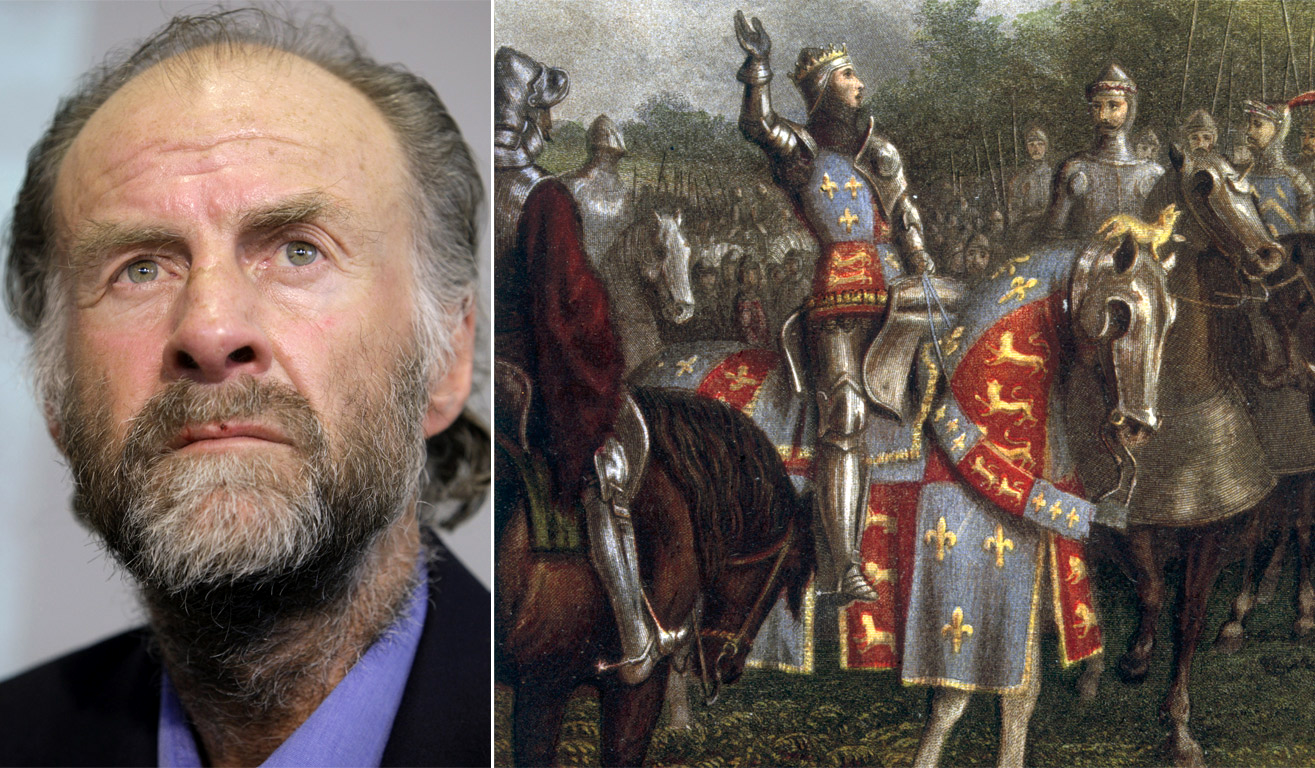Once more unto the breach for Sir Ranulph Fiennes: Explorer to write book on his ancestors' roles in the Battle of Agincourt
Three of Sir Ranulph’s forebear’s took up arms in the service of Henry V, while another, Robert Fiennes, was the constable of France

Sir Ranulph Fiennes is to write a uniquely personal history of the Battle of Agincourt – tracing the lives of his ancestors who fought on different sides of the 1415 conflict.
Three of the explorer’s forebear’s took up arms in the English force led by Henry V, while another, Robert Fiennes, was the constable of France and head of the French army.
Sir Ranulph’s account of their contrasting experiences will be published by Hodder & Stoughton next autumn, ahead of the 600th anniversary of Agincourt. The work will give Sir Ranulph, 69, a chance to research in the family archives in Broughton Castle, north of Oxford, as well as to travel to Fiennes, a village near to the battlefield.
The explorer said: “My book will cover not only the battle but what happened before and afterwards – Agincourt is one of the greatest events in English history and I’m excited at the prospect of telling the story from a different angle. I’ve done a bit with bows and arrows in my youth, but for this book I’m going to learn how to shoot with a longbow so I can really appreciate what those famous archers achieved.”
Rupert Lancaster, non-fiction publisher at Hodder, said: “Ran’s military background and his family connection with the battle make this project unique.” He added: “Ran will make the same journey to the battlefield as his ancestors did, only by Eurostar.”
Anne Curry, dean of the faculty of humanities at the University of Southampton and an expert on the period, told The Independent: “It will be interesting to see what Sir Ranulph does. His ancestors were important; some served for a long time in the Hundred Years War. They are there, for instance, in the loss of Normandy in 1449.”
She warned that studying contemporary records could prove taxing: “Many are written in Latin or French and the handwriting isn’t that easy. But it is great people like him are interested.”
Publishers are expecting an avalanche of new material on Agincourt ahead of the 2015 anniversary, as well as existing works to be republished.
Professor Curry said: “The reason Agincourt is so enduring is Shakespeare’s Henry V, which is arguably better known than the battle itself. There are lots of other battles in the Middle Ages.”
It is not the first time Sir Ranulph has written his family tree. In Mad Dogs and Englishmen, published in 2009, he traced ancestors including a count who nearly persuaded William the Conqueror to retreat at Hastings.
Subscribe to Independent Premium to bookmark this article
Want to bookmark your favourite articles and stories to read or reference later? Start your Independent Premium subscription today.

Join our commenting forum
Join thought-provoking conversations, follow other Independent readers and see their replies